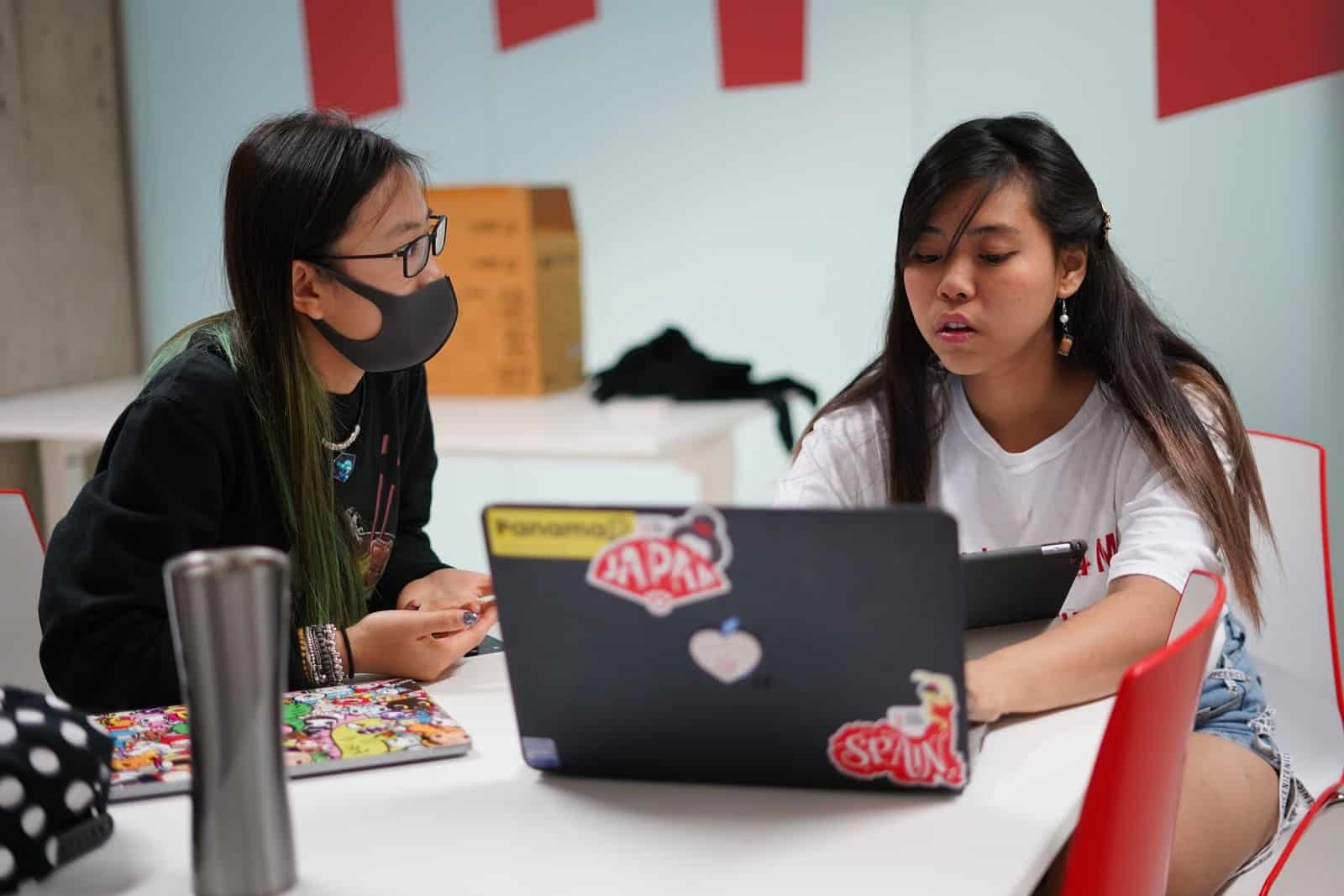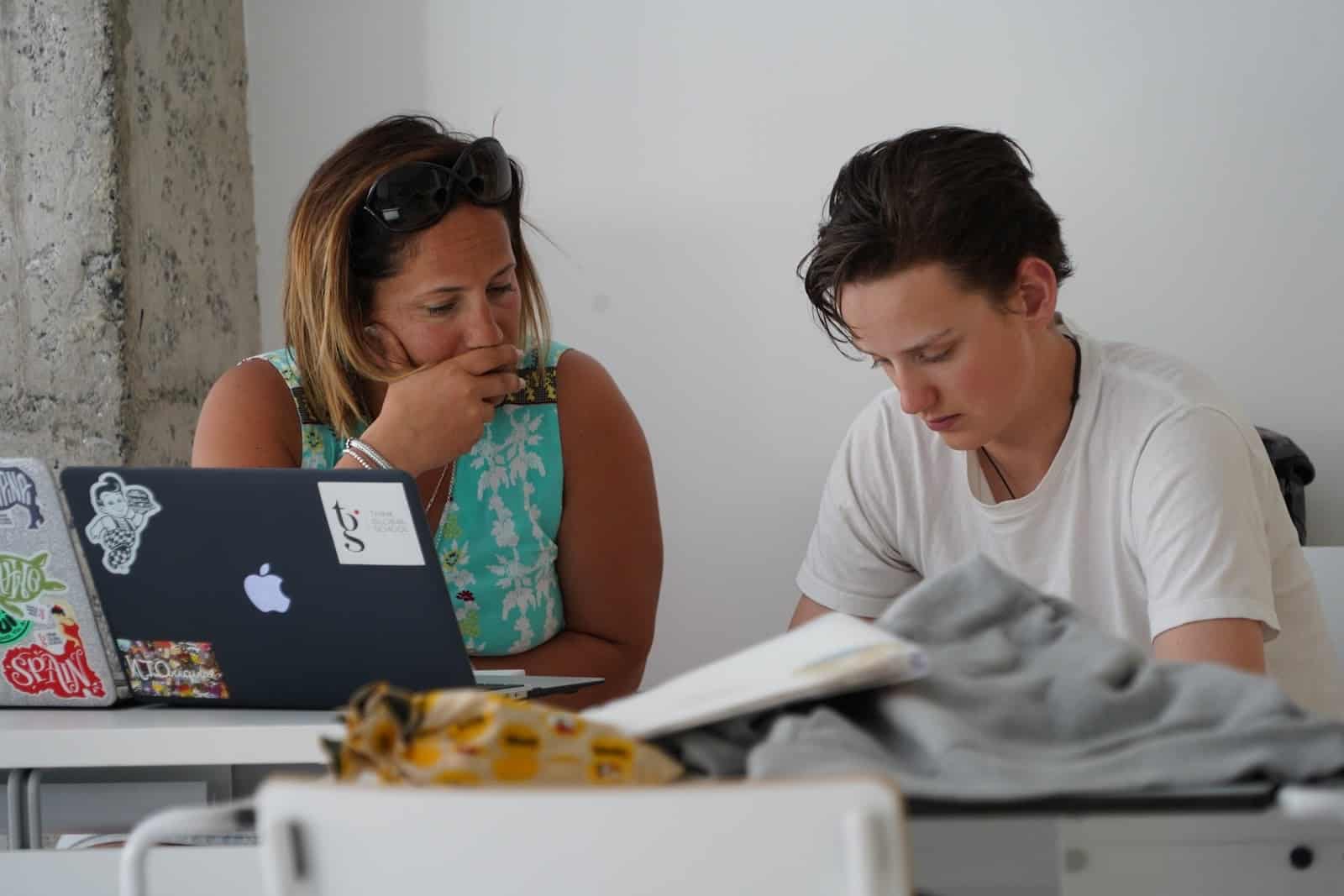How To Know What Your Teenager Is Doing In School

By: Jamie Steckart
We are all confined to our houses, condominiums, and apartments. Space is limited. Cabin fever is setting in. Parents are adjusting to working from home while many children are adapting to learning online, or in more severe circumstances, struggling to learn without online access, a structured curriculum, or teacher guidance. Stress levels due to uncertainty are at an all-time high.
As schools have closed, with no sign this situation will end soon, we have transitioned from making sure our children wake up in time to catch the bus to being the only adults they come into contact with for the majority of the day.
This is a new role for many parents, and it heightens the anxiety inside one’s household. It can cause tension and lead to conflict. Your pattern of interacting with your son or daughter has been established over many years, yet a new kind of relationship needs to emerge.
Understanding the nature of adolescence is important for parents. Your kids are growing and they naturally crave independence. How do you balance knowing your child is progressing in their education while also giving them the space to develop the executive functioning skills needed for success in the real world? We tend as parents to cringe when our children fail and it tears our hearts apart when they get hurt.

So how can we ensure a healthy relationship with our child in a world where quarantining is the new norm and online learning is the sole method of instruction?
One tool to help set expectations, provide structure, and alleviate stress is setting a structure for weekly meetings. This can be a positive experience for teenage students and can also be used for younger students if some of the items are modified based on maturity.
Setting the Rationale
Setting the purpose and stage for the initial meeting is very important. This should be done from a perspective of caring and love. A possible script could go something like this: “Hey, Charlotte, we are experiencing something no one in this family has ever gone through before. It certainly has added stress to my life, as I am sure it has for you and your friends. While the world is in chaos, why don’t we take this opportunity to grow as a family? As your dad, I need to know how you are progressing in school, but at the same time I know you have skills and a routine for accomplishing your work. Is it possible for us to schedule a weekly meeting so I don’t seem like I am nagging you, but you can also give me updates so I can sleep at night? (should be done with some humor)”
Hopefully your child’s initial reaction will be positive. If you get pushback, emphasize it’s not because you don’t trust them: It’s because you’re genuinely interested in what they are doing and at the same time it’s helping reduce your stress level at a time when stresses are many.
Structure of the Meeting
Regular Schedule: When we place something on our calendars we are telling the world that this is important. Make this time sacred; let other members of the family know that you don’t want to be disturbed. While every child is different and matures at a different rate, try not to make a habit of checking in with them every day. Once or twice a week should be sufficient to get a handle on their progress.
Personally, I like using an electric calendar.
This simple organizational tool is commonplace in the world of work, and I have my kid schedule the time and invite me to the meeting. I recommend either picking the beginning or end of the week (which I will talk about later when we get to topics covered). What’s really important is keeping the time consistent. If you have other children, maybe make this a quiet reading time for them and rotate each of them in for each child’s special time with you.

Place: Pick a place that is separate from others. This can be in a corner of the apartment, the kitchen table, home office, or other space. I recommend sitting side-by-side instead of across from each other, as it’s more of a cooperative structure and you can share a screen.
Amount of time: When you get the hang of these meetings, you should be able to do a weekly meeting within 30 to 45 minutes. Anything more than that can become tedious. This will be especially important if you have more than one child.
Structure/Topics Covered: The topics and structure are really easy once you and your child get the hang of it. It’s important to remember that you as the adult are there not to judge but to help and listen to your kid.
- Successes: Always ask and have the student share any successes they had in the last week. These can be reaching a goal or completing a task. Things that they accomplished during the week should be considered.
- Highlights From the Week: Have them account for anything that was fun or brought them joy. It doesn’t necessarily need to be school related.
- Gratitude: Have them share one or two items that they are grateful for. Studies in positive psychology show that showing gratitude increases happiness.
- Challenges and Solutions: Have them share one or two challenges they are facing in the upcoming week. This helps them anticipate problems. Follow up with a question on how they will adapt and overcome these challenges. Be careful not to jump into a solution for them.
- Help/Assistance: Based on what was talked about, ask what kind of support they would like from you during the upcoming seven days. It’s okay if they don’t need help, but it is important that they know you will support them if asked.
The magic of ritual is very important in families. How you end the meeting is important. Express your gratitude for them sharing. This really should be a positive experience. We use this format at THINK Global School for many of our one-on-one meetings with our teachers. It is a reflective process based on respect and trust.
Hopefully by implementing this simple yet effective process in your own home, you can build upon your relationship with your child and relieve some of the anxiety and stress brought on by this global pandemic. I certainly wish you and your family well.
For more, see:
- Getting Through: Supporting Learners as they Transition to School at Home
- Podcast: Rachel Wigglesworth on Learning at Home
- As Distance Learning Turns On, Students Increasingly Tune Out
Stay in-the-know with innovations in learning by signing up for the weekly Smart Update.
Getting Smart has launched the Getting Through series to support educators, leaders, and families on the path forward during such an uncertain time. This series will provide resources and inspiration as we face long term school closures, new learning environments, and address equity and access from a new lens. Whether you are just getting started with distance or online learning, or you’ve had plans in place and have the opportunity to share your work and guidance with others, there is a place for your voice and an opportunity to learn.
We’re going to get through this together, and we invite you to join us. Please email [email protected] with any questions or content you’d like considered for publication. We also invite you to join the conversation and on social media using #GettingThrough.
Jamie Steckart is Head of School at THINK Global School, the world’s first traveling school, which educates students through a combination of project-based learning and firsthand experiences around the globe.





0 Comments
Leave a Comment
Your email address will not be published. All fields are required.